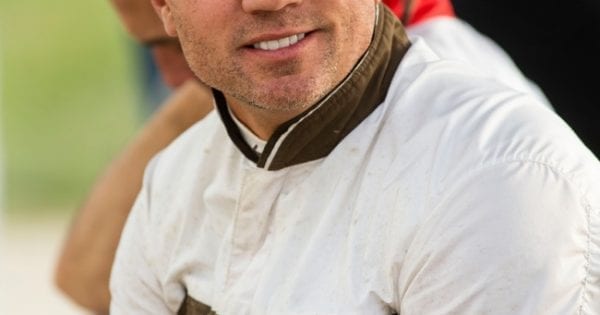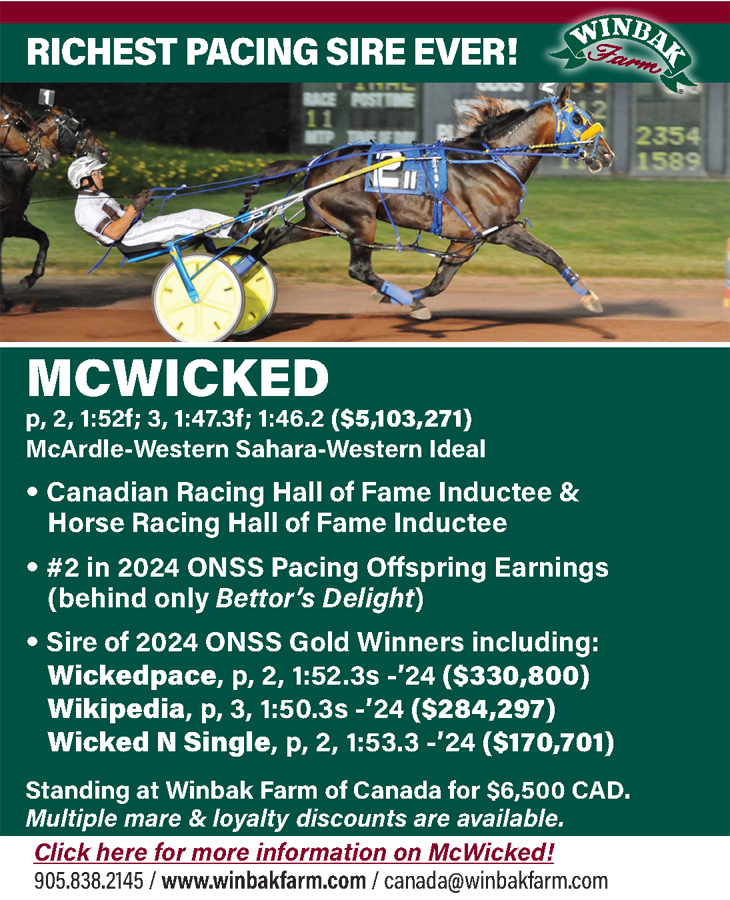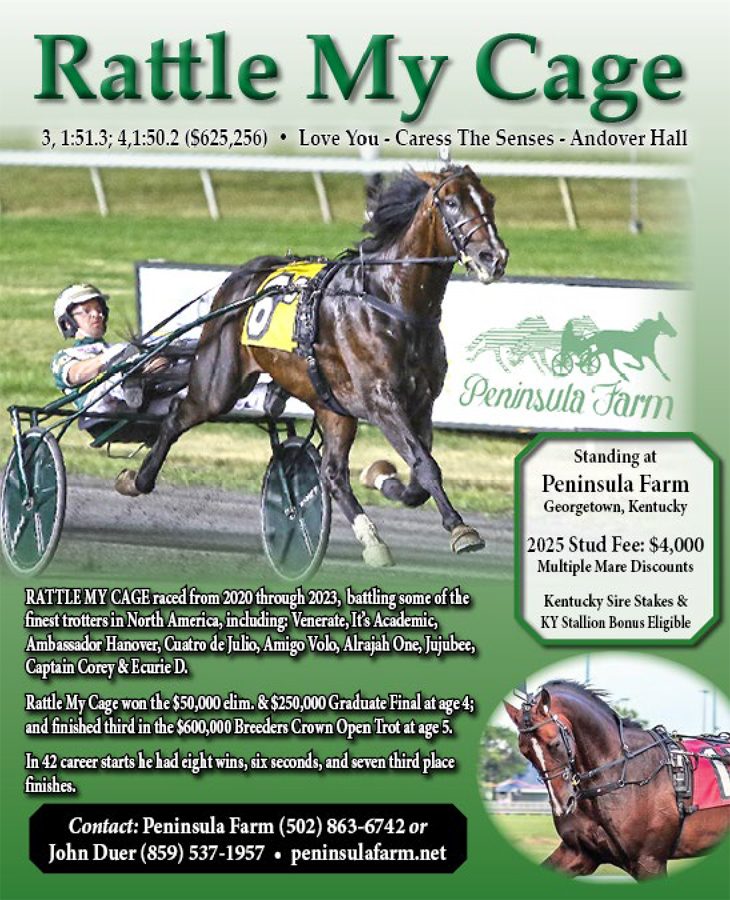
Are others besides Sears worthy of Hall of Fame status?
An inside look at the process that determines Hall of Famers.
by Dean A. Hoffman
News that Brian Sears will be on the ballot as a candidate for induction into the Hall of Fame unleashed a predictable backlash this week on social media.
Oh, it’s not that anyone questions Sears’ ability as a driver. No, siree, Bob.
But some have questioned why there is only one nominee — and why not certain people that they support. Others, question the process.
As someone who served on the Hall of Fame Screening Committee for many years, I can appreciate the dilemma facing those entrusted with making the nominations.
Names are submitted by the various chapters of the U.S. Harness Writers Association and it is the task of the Screening Committee to review them and submit the nominee(s).
At times the task can be ridiculously easy; at other times it can be grueling. Some candidates garner immediate and widespread support while others seem to be regional or marginal candidates. We all see these things through the prism of our own experience—just as some people vote Republican, some vote Democratic, some vote Libertarian, and some don’t vote at all.
The Screening Committee consisted of USHWA members and Harness Racing Museum trustees. Yes, some members pushed hard for favored candidates. I remember one committee person lobbying the others vigorously to elevate a certain individual to the Goshen pantheon.
Then the committee member perhaps most universally respected pointed out that this was a national honor and the person being pushed had only regional impact in racing. The issue died.
You would get those situations periodically where people would push a “favorite son” from their local track or area. This person might have won a gazillion races at one track or in one area, but if he had no national impact, it was difficult to make a case for a place in Hall Of Fame.
Virtually everyone whose name was considered was a person of accomplishment. (One exception is when I encountered a name I simply didn’t recognize. I was informed that it was a secretary to an important track official.) It’s usually a matter of degrees. The candidates were reviewed. If a candidate was borderline, he probably did not belong. The late Norman Woolworth once summed up the process by saying, “A name ought to really jump off the page as being worthy.”
I was in the room more than 20 years ago when the name “Mike Lachance” jumped off the page. Everyone seemed stunned that he had not previously been honored.
I was also in the room in 1997 when no name jumped off the page. There was no nomination for the Hall of Fame that year.
When that news got out, I encountered mixed reactions. Some people told me it was terrible because they feared no one would come to the induction ceremony the next year, no one would buy congratulatory ads in the journals, etc.
But I also recall more than one person saying, “I think that’s great. It shows that the honor has meaning and that it’s not an automatic every year. It gives credibility to Hall of Fame status. It should be the best of the best in harness racing.”
There was certainly precedent for years with no nominations. After E. Roland Harriman and Steve Phillips were inducted in the first 1961 class, there was a hiatus of five years before George Morton Levy and Walter J. Michael were inducted. The initial classes of inductees were usually small. In many years there were none.
In the mid-1980s it seemed the “cheaper by the dozen” philosophy prevailed with three or four inductees every year. I think that did water down the honor a bit. Recent classes have been smaller.
Some people seem to have a laser focus on leading drivers as the most deserving nominees. I’ve seen names of top drivers at local tracks with virtually no national impact deemed to be worthy.
It’s easy for the casual fans to focus on drivers. They’re in the spotlight. They’re in the winner’s circle. They’re the ones dressed in the white pants. They’re recognizable.
But I’ve pointed out often that drivers would not have horses to race if there were no trainers. And trainers would not have horses if there were no owners. And owners would not have horses if there were no breeders and farm managers. And horses would not have a place to race if there were no track owners and officials.
Yes, drivers must be considered, but certainly not to the exclusion of others.
(I recently had a person upbraid me on the fact that there are no grooms in the Hall of Fame. I replied that the HTA Grooms Award started years ago by the late legends Delvin Miller and Stan Bergstein was a de facto hall of fame for grooms.)
It’s no secret that over the years some Hall of Fame hopefuls have mounted campaigns on their behalf. They encourage friends to push for their nomination. Some object to that, but there is certainly nothing wrong with campaigning for such a high honor.
But if a person has to enlist surrogates to campaign, is he truly worthy of the honor? Shouldn’t others recognize his accomplishments without a campaign effort?
Periodically you encounter the Pete Rose dilemma. If a person has a history of major penalties, should that person be held up as an exemplary person for the highest honor in harness racing?
Are accomplishments more important than integrity? Do we want nominees who have a black cloud hanging over them?
We are not talking about a trainer fined for leaving a hose running in the barn area or whose horse was late to the paddock one night. Nor are we talking about interference infractions of drivers. But what about major or repeated violations that compromise racing image’s and integrity?
There are not too many angels involved in horseracing (with the exception of the writer, of course….) but I think that an individual’s integrity record must and should be considered along with his accomplishments.
Again, it’s the Pete Rose dilemma. Some say Pete belongs in Cooperstown; others say no way.
Could there be other nominations besides Brian Sears this year? Of course! But I was not in the room when those other names were discussed. Personally, I think trainers such as Per Eriksson and Blair Burgess are long overdue. I think Chris Boring deserves Hall of Fame status. I could name others.
I would like to see farm managers — for example, Carter Duer and Albert Adams — recognized.
Alas, there are no cheering crowds when a farm manager is saving a foal’s life at 3 a.m. No one takes their photo. But the work they do is essential and so often overlooked.
Many people can cite certain owners, breeders, officials, and trainers as worthy. We all see things a bit differently. I would certainly not favor a cattle stampede into the Hall of Fame, but additional people might be worthy of nomination.
It’s just like a horse race: We all have our opinions and our personal favorites.












